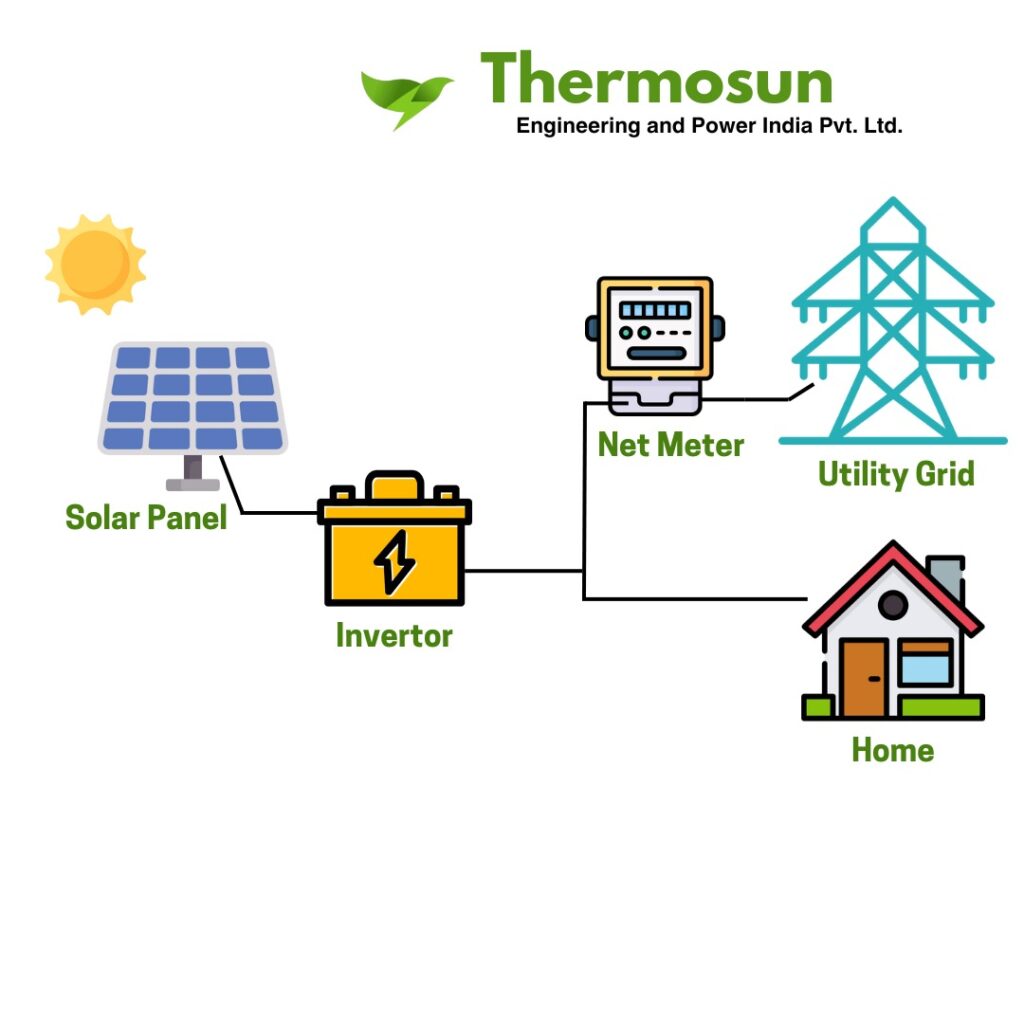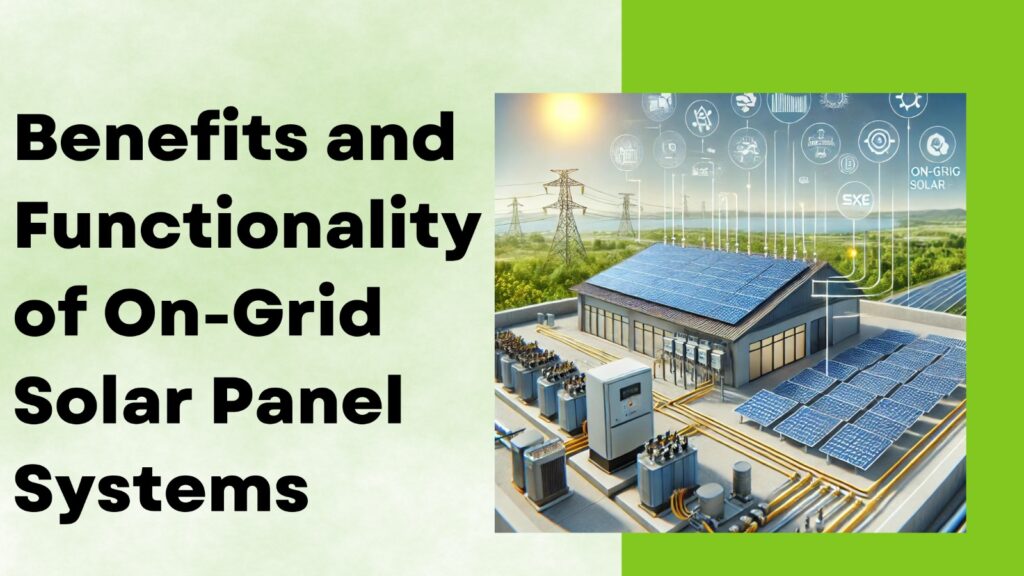Understanding On-Grid Solar Panel Systems: How They Work and Why They’re Beneficial
As the world shifts towards renewable energy sources, solar power has become a popular choice for both residential and commercial energy needs. Among the various solar power systems available, on-grid solar panel systems stand out for their efficiency and cost-effectiveness. This article delves into the benefits and functionality of on-grid solar panel systems, providing a comprehensive understanding of how on-grid solar panel systems work and why they are beneficial.
What Are On-Grid Solar Panel Systems?
On-grid solar panel systems, also known as grid-tied or grid-linked solar power systems, are connected to the public electrical grid. Unlike off-grid systems, which require battery storage to store excess power, on-grid systems re-feed surplus solar electricity into the grid. Even on days or nights when solar power generation isn’t as high, electricity is always available because they are connected to the grid.
How Do On-Grid Solar Panel Systems Work?
Several essential elements enable on-grid solar panel systems to operate:
Solar panels: These main parts collect solar radiation and transform it into DC (direct current) electricity. Usually, installers place them in open areas or on rooftops that receive the most sunlight.
Inverter: An inverter changes the direct current (DC) electricity produced by the solar panels into alternating current (AC) electricity. The majority of home equipment and the grid run on AC power, which is the normal type of energy.
Electrical Panel: The electrical panel distributes the power, converted from DC to AC, to run appliances in homes and businesses.
Utility Meter: This device calculates how much power the grid draws and how much the solar panels produce in excess and feed back into the grid. Modern meters feature net metering, which measures both the inflow and outflow of electricity.
Grid Connection: The system links to the neighborhood utility grid, allowing power to move both ways. When solar panels generate more electricity than required, the excess feeds into the grid; when production is low, power is taken from the grid.

Benefits of On-Grid Solar Panel Systems
Cost Savings: One of the main advantages of on-grid solar panel installations is lowering electricity bills. By producing your own electricity and reducing your reliance on the utility grid, you can save a significant amount of money over time. Net metering also enables you to receive credits for the extra electricity you feed into the grid, further balancing your energy expenditures.
Environmental Impact: Off-grid solar systems help lessen their carbon footprint by producing clean, renewable energy. Relying more on solar electricity and less on fossil fuels can help reduce greenhouse gas emissions and improve the environment.
Reliability: On-grid systems guarantee an uninterrupted supply of electricity. When your solar panels aren’t producing enough power, the grid supplies the required electricity to keep your house or business powered.
Low Maintenance: On-grid solar panel systems require less maintenance than off-grid systems because they do not require batteries, which need regular replacement. The principal parts, the inverters and solar panels, are low-maintenance and long-lasting.
Financial Incentives: Many state and municipal governments provide rebates, tax credits, and incentives to people who install solar power systems. These monetary rewards can significantly lower the initial investment cost and increase the total return on investment.
Higher Property Value: Homes and businesses powered by solar typically fetch higher prices on the open market. Prospective buyers see solar installations as a long-term investment with lower energy bills and environmental benefits.
Conclusion
On-grid solar panel systems present a practical and efficient way to harness solar energy. Their capacity to lower electricity costs makes them a desirable choice for a lot of people. Furthermore, they support environmental preservation. In addition to providing a dependable power source, on-grid solar systems also come with financial benefits. You may contribute to a sustainable future by choosing to integrate renewable energy into your house or place of business by being aware of the features and advantages of these systems.
Embracing on-grid solar technology is not only a smart financial move but also a step towards a cleaner, greener planet.


